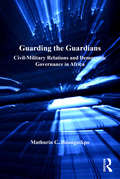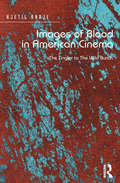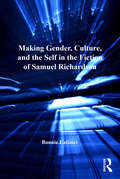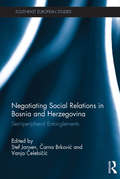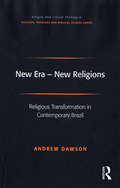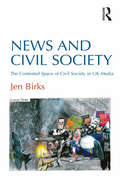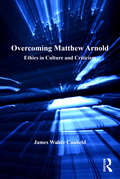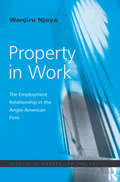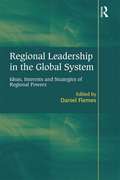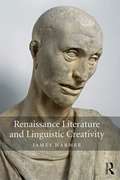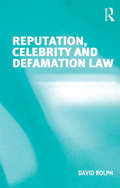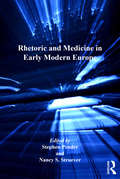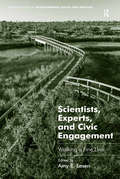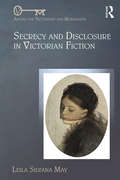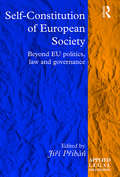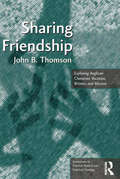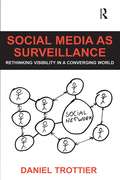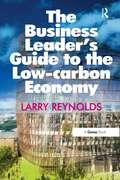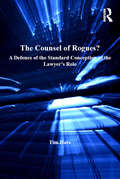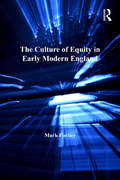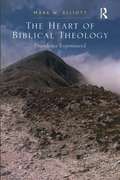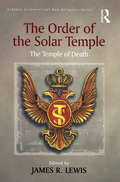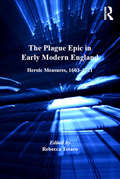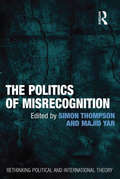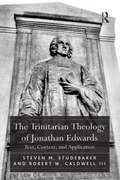Special Collections
Benetech’s Global Certified Accessible Titles
Description: Benetech’s GCA program is the first independent third-party EPUB certification to verify ebook accessibility. By creating content that is born accessible, publishers can meet the needs of all readers. Learn more: https://bornaccessible.benetech.org/
- Table View
- List View
Guarding the Guardians
by Mathurin C. HoungnikpoThe relationship between civil society and the armed forces is an essential part of any polity, democratic or otherwise, because a military force is after all a universal feature of social systems. Despite significant progress moving towards democracy among some African countries in the past decade, all too many African militaries have yet to accept core democratic principles regulating civilian authority over the military. This book explores the theory of civil-military relations and moves on to review the intrusion of the armed forces in African politics by looking first into the organization and role of the army in pre-colonial and colonial eras, before examining contemporary armies and their impact on society. Furthermore it revisits the various explanations of military takeovers in Africa and disentangles the notion of the military as the modernizing force. Whether as a revolutionary force, as a stabilizing force, or as a modernizing force, the military has often been perceived as the only organized and disciplined group with the necessary skills to uplift newly independent nations. The performance of Africa's military governments since independence, however, has soundly disproven this thesis. As such, this study conveys the necessity of new civil-military relations in Africa and calls not just for civilian control of the military but rather a democratic oversight of the security forces in Africa.
Images of Blood in American Cinema
by Kjetil RødjeThrough studying images of blood in film from the mid-1950s to the end of the 1960s, this path-breaking book explores how blood as an (audio)visual cinematic element went from predominately operating as a signifier, providing audiences with information about a film’s plot and characters, to increasingly operating in terms of affect, potentially evoking visceral and embodied responses in viewers. Using films such as The Return of Dracula, The Tingler, Blood Feast, Two Thousand Maniacs, Color Me Blood Red, Bonnie and Clyde, and The Wild Bunch, Rødje takes a novel approach to film history by following one (audio)visual element through an exploration that traverses established standards for film production and reception. This study does not heed distinctions regarding to genres (horror, western, gangster) or models of film production (exploitation, independent, studio productions) but rather maps the operations of cinematic images across marginal as well as more traditionally esteemed cinematic territories. The result is a book that rethinks and reassembles cinematic practices as well as aesthetics, and as such invites new ways to investigate how cinematic images enter relations with other images as well as with audiences.
Making Gender, Culture, and the Self in the Fiction of Samuel Richardson
by Bonnie LatimerProposing that Samuel Richardson's novels were crucial for the construction of female individuality in the mid-eighteenth century, Bonnie Latimer shows that Richardson's heroines are uniquely conceived as individuals who embody the agency and self-determination implied by that term. In addition to placing Richardson within the context of his own culture, recouping for contemporary readers the influence of Grandison on later writers, including Maria Edgeworth, Sarah Scott, and Mary Wollstonecraft, is central to her study. Latimer argues that Grandison has been unfairly marginalised in favor of Clarissa and Pamela, and suggests that a rigorous rereading of the novel not only provides a basis for reassessing significant aspects of Richardson's fictional oeuvre, but also has implications for fresh thinking about the eighteenth-century novel. Latimer's study is not a specialist study of Grandison but rather a reconsideration of Richardson's novelistic canon that places Grandison at its centre as Richardson's final word on his re-envisioning of the gendered self.
Negotiating Social Relations in Bosnia and Herzegovina
by Čarna Brković and Stef Jansen and Vanja ČelebičićExploring recent configurations of social relations in post-socialist, post-war, post-Yugoslav Bosnia and Herzegovina this collection of ethnographic research turns an analytical lens on questions of sociality. Contributions based on long-term, in-depth research projects explore how people in different parts of BiH make and remake social relations and outline how their practices of sociality relate to donor-set priorities and formal human rights provisions. The book explores the socio-political concerns which have emerged within BiH, incites interdisciplinary conversations and sheds critical light on ways of engaging with these concerns and discusses forms of sociality, politics and agency which remain largely absent from the official political discourse and practice of local and foreign actors. Explicitly focusing on social relations in BiH against the historical background of both war and Yugoslav socialism, and directly placing these in relation to authoritative discourses and policies regarding BiH today brings the different strands together while the commentaries of specialists who have studied BiH in different ways explicitly situates the contribution of ethnographic work in the country.
New Era - New Religions
by Andrew DawsonNew Era - New Religions examines new forms of religion in Brazil. The largest and most vibrant country in Latin America, Brazil is home to some of the world's fastest growing religious movements and has enthusiastically greeted home-grown new religions and imported spiritual movements and new age organizations. In Brazil and beyond, these novel religious phenomena are reshaping contemporary understandings of religion and what it means to be religious. To better understand the changing face of twenty-first-century religion, New Era - New Religions situates the rise of new era religiosity within the broader context of late-modern society and its ongoing transformation.
News and Civil Society
by Jen BirksCivil Society has not been more relevant as a concept and a practice since the fall of communism in Eastern Europe. Global events from Tahir Square to Wall St have brought a new relevance and urgency to questions about the boundaries of legitimate dissent and public order policing, the meaning of tolerance in the context of conflicting rights claims, and how we can agree on the shared values of the ’good society’. This timely book examines the representation of civil society in news media, exploring the popular understanding of this contested space in relation to conflicting legitimating frames: as the neo-liberal Big Society, activist political participation, or postmodern apolitical tolerance. With close reference to prominent news stories, including the UK state visit of Pope Benedict XVI, anti-austerity protests and industrial action, police infiltration of the environmental movement, and the Occupy camp at St Paul’s Cathedral in London, News and Civil Society scrutinises different facets of contemporary civil society, civility and civic virtue. A cross-disciplinary engagement with questions of national identity and pluralism, civil liberties and dissent, power and accountability, this book will appeal to those with interests in media, journalism, sociology, citizenship and political studies.
Overcoming Matthew Arnold
by James Walter CaufieldOpening the way for a reexamination of Matthew Arnold's unique contributions to ethical criticism, James Walter Caufield emphasizes the central role of philosophical pessimism in Arnold's master tropes of "culture" and "conduct." Caufield uses Arnold's ethics as a lens through which to view key literary and cultural movements of the past 150 years, demonstrating that Arnoldian conduct is grounded in a Victorian ethic of "renouncement," a form of altruism that wholly informs both Arnold's poetry and prose and sets him apart from the many nineteenth-century public moralists. Arnold's thought is situated within a cultural and philosophical context that shows the continuing relevance of "renouncement" to much contemporary ethical reflection, from the political kenosis of Giorgio Agamben and the pensiero debole of Gianni Vattimo, to the ethical criticism of Wayne C. Booth and Martha Nussbaum. In refocusing attention on Arnold's place within the broad history of critical and social thought, Caufield returns the poet and critic to his proper place as a founding father of modern cultural criticism.
Property in Work
by Wanjiru NjoyaThe notion of property in work has deep historical roots in the common law tradition, but is yet to receive the attention it deserves. In this timely and thought-provoking book, Wanjiru Njoya contrasts ideas of ownership and property rights in English, American and European labour law, and considers their practical implications. The author's contention that shared ownership within a stakeholder theory of the firm allows better protection of both shareholders' and employees' interests in the large public corporation, puts employee-participation firmly back on the corporate governance agenda. The book offers a refreshing new perspective on how a more socially desirable balance between economic flexibility and job security may be achieved.
Regional Leadership in the Global System
by Daniel FlemesWe assume that the ideas, interests and strategies of regional powers are highly significant variables, with the power to influence foreign policy. Yet while comparative research projects involving OECD-countries are fairly common, comparative research integrating developing regions is still rare, despite the fact that these countries are among the key actors of the twenty-first century. This collection emphasizes the role of regional powers in intra-regional, interregional and global contexts, analyzing the rise of regional powers from a comparative perspective. In so doing, the book explains how these powers have power to shape regional and global politics.
Renaissance Literature and Linguistic Creativity
by James HarmerRenaissance Literature and Linguistic Creativity interrogates notions of linguistic creativity as presented in English literary texts of the late sixteenth century. It considers the reflections of Renaissance English writers upon the problem of how linguistic meaning is created in their work. The book achieves this consideration by placing its Renaissance authors in the context of the dominant conceptualisation of the thought-language relationship in the Western tradition: namely, that of 'introspection'. In taking this route, author James Harmer undertakes to provide a comprehensive overview of the notion of 'introspection' from classical times to the Renaissance, and demonstrates how complex and even strange this notion is often seen to be by thinkers and writers. Harmer also shows how poetry and literary discourse in general stands at the centre of the conceptual consideration of what linguistic thinking is. He then argues, through a range of close readings of Renaissance texts, that writers of the Shakespearean period increase the fragility of the notion of 'introspection' in such a way as to make the prospect of any systematic theory of meaning seem extremely remote. Embracing and exploring the possibility that thinking about meaning can only occur in the context of extreme cognitive and psychological limitation, these texts emerge as proponents of a human mind which is remarkably free in its linguistic nature; an irresistible mode of life unto itself. The final argumentative stratum of the book explores the implications of this approach for understanding the relationship between literary criticism, philosophy, and other kinds of critical activity. Texts discussed at length include Edmund Spenser's The Faerie Queene and shorter poetry, George Chapman's Ovids Banquet of Sence, Shakespeare's Titus Andronicus and Hamlet, and John Donne's Elegies.
Reputation, Celebrity and Defamation Law
by David RolphTaking Robert Post's seminal article 'The Social Foundations of Reputation and the Constitution' as a starting point, this volume examines how the concept of reputation changes to reflect social, political, economic, cultural and technological developments. It suggests that the value of a good reputation is not immutable and analyzes the history and doctrines of defamation law in the US and the UK. A selection of Australian case studies illustrates different concepts of defamation law and offers insights into their specific nature. Drawing on approaches to celebrity in media and cultural studies, the author conceptualizes reputation as a media construct and explains how reputation as celebrity is of great contemporary relevance at this point in the history of defamation law.
Rhetoric and Medicine in Early Modern Europe
by Nancy S. StrueverThrough close analysis of texts, cultural and civic communities, and intellectual history, the papers in this collection, for the first time, propose a dynamic relationship between rhetoric and medicine as discourses and disciplines of cure in early modern Europe. Although the range of theoretical approaches and methodologies represented here is diverse, the essays collectively explore the theories and practices, innovations and interventions, that underwrite the shared concerns of medicine, moral philosophy, and rhetoric: care and consolation, reading, policy, and rectitude, signinference, selfhood, and autonomy-all developed and refined at the intersection of areas of inquiry usually thought distinct. From Italy to England, from the sixteenth through to the mid-eighteenth century, early modern moral philosophers and essayists, rhetoricians and physicians investigated the passions and persuasion, vulnerability and volubility, theoretical intervention and practical therapy in the dramas, narratives, and disciplines of public and private cure. The essays are relevant to a wide range of readers, including cultural, literary, and intellectual historians, historians of medicine and philosophy, and scholars of rhetoric.
Scientists, Experts, and Civic Engagement
by Amy E. LesenHow do scientists, scholars, and other experts engage with the general public and with the communities affected by their work or residing in their sites of study? Where are the fine lines between public scholarship, civic engagement, and activism? Must academics 'give back' once they collect data and publish results? In this volume, authors from a wide range of disciplines examine these relationships to assess how they can be fruitful or challenging. Describing the methodological and ethical issues that experts must consider when carrying out public scholarship, this book includes a checklist for critical factors of success in engagement and an examination of the role of digital social media in science communication. Illustrated by a range of case studies addressing environmental issues (climate change, resource use, post-disaster policy) and education, it offers an investigation into the levels and ways in which scholars can engage, and how and whether academics and experts who engage in community work and public scholarship are acknowledged and rewarded for doing so by their institutions. Also bringing into the debate the perspective of citizens who have collaborated with academics, the book offers an exploration of the democratizing potential of participatory action research.
Secrecy and Disclosure in Victorian Fiction
by Leila Silvana MayWhy were the Victorians more fascinated with secrecy than people of other periods? What is the function of secrets in Victorian fiction and in the society depicted, how does it differ from that of other periods, and how did readers of Victorian fiction respond to the secrecy they encountered? These are some of the questions Leila May poses in her study of the dynamics of secrecy and disclosure in fiction from Queen Victoria's coronation to the century's end. May argues that the works of writers such as Charlotte Brontë, William Makepeace Thackeray, Mary Elizabeth Braddon, Edward Bulwer-Lytton, and Arthur Conan Doyle reflect a distinctly Victorian obsession with the veiling and unveiling of information. She argues that there are two opposing vectors in Victorian culture concerning secrecy and subjectivity, one presupposing a form of radical Cartesian selfhood always remaining a secret to other selves and another showing that nothing can be hidden from the trained eye. (May calls the relation between these clashing tendencies the "dialectics" of secrecy and disclosure.) May's theories of secrecy and disclosure are informed by the work of twentieth-century social scientists. She emphasizes Georg Simmel's thesis that sociality and subjectivity are impossible without secrecy and Erving Goffman's claim that sociality can be understood in terms of performativity, "the presentation of the self in everyday life," and his revelation that performance always involves disguise, hence secrecy. May's study offers convincing evidence that secrecy and duplicity, in contrast to the Victorian period's emphasis on honesty and earnestness, emerged in response to the social pressures of class, gender, monarchy, and empire, and were key factors in producing both the subjectivity and the sociality that we now recognize as Victorian.
Self-Constitution of European Society
by Jiří PřibáňRecent social and political developments in the EU have clearly shown the profound structural changes in European society and its politics. Reflecting on these developments and responding to the existing body of academic literature and scholarship, this book critically discusses the emerging notion of European constitutionalism, its varieties and different contextualization in theories of EU law, general jurisprudence, sociology of law, political theory and sociology. The contributors address different problems related to the relationship between the constitutional state and non-state constitutionalizations and critically analyze general theories of constitutional monism, dualism and pluralism and their juridical and political uses in the context of EU constitutionalism. Individual chapters emphasize the importance of interdisciplinary and socio-legal methods in the current research of EU constitutionalism and their potential to re-conceptualize and re-think traditional problems of constitutional subjects, limitation and separation of power, political symbolism and identity politics in Europe. This collection simultaneously describes the EU and its self-constitution as one polity, differentiated society and shared community and its contributors conceptualize the sense of common identity and solidarity in the context of the post-sovereign multitude of European society.
Sharing Friendship
by John B. ThomsonSharing Friendship represents a post-liberal approach to ecclesiology and theology generated out of the history, practices and traditions of the Anglican Church. Drawing on the theological ethics of Stanley Hauerwas, this book explores the way friendship for the stranger emerges from contextually grounded reflection and conversations with contemporary Anglican theologians within the English tradition, including John Milbank, Oliver O’Donovan, Rowan Williams, Daniel Hardy and Anthony Thiselton. Avoiding abstract definitions of character, mission or friendship, John Thomson explores how the history of the English Church reflects a theology of friendship and how discipleship in the New Testament, the performance of worship, and the shape of Anglican ecclesiology are congruent with such a theology. The book concludes by rooting the theme of sharing friendship within the self-emptying kenotic performance of Jesus’ mission, and looks at challenges to the character of contemporary Anglican ecclesiology represented by secularization and globalization as well as by arguments over appropriate new initiatives such as Fresh Expressions.
Social Media as Surveillance
by Daniel TrottierWhile there is a lot of popular and academic interest in social media, this is the first academic work which addresses its growing presence in the surveillance of everyday life. Some scholars have considered its impact on privacy, but these efforts overlook the broader risks for users. Commonsense recommendations of care and vigilance are not enough, as attempts to manage an individual presence are complicated by the features which make social media 'social'. Facebook friends routinely expose each other, and this information leaks from one context to another. This book develops a surveillance studies approach to social media by presenting first hand ethnographic research with a variety of personal and professional social media users. Using Facebook as a case-study, it describes growing monitoring practices that involve social media. What makes this study unique is that it not only considers social media surveillance as multi-purpose, but also shows how these different purposes augment one another, leading to a rapid spread of surveillance and visibility. Individual, institutional, market-based, security and intelligence forms of surveillance therefore co-exist with each other on the same site. Not only are they drawing from the same interface and information, but these practices also augment each other. This groundbreaking research considers the rapid growth and volatility of social media technology by treating these aspects as central to social media surveillance.
The Business Leader's Guide to the Low-carbon Economy
by Larry ReynoldsRising energy prices and concerns about climate change are driving us towards a new kind of economy - a low-carbon economy. What will this low-carbon economy be like, and what does your business have to do to prosper in this new business environment? Larry Reynolds shows how successful organisations are already learning to be more energy efficient, manage their carbon footprint, adapt to climate change and become truly sustainable. As well as explaining how to future-proof your organisation against possible threats, The Business Leader’s Guide to the Low-carbon Economy, tells you how to make the most of the many opportunities that the low-carbon economy will bring, especially in growing profits from new products and services. It is your guide to creating an organisation that will thrive in the twenty-first century. While there are plenty of published books about 'going green', there are none which explain the low-carbon economy and how to thrive in it. This book will fill that important gap. Drawing on examples from across industries, including businesses such as Asda, BT, Cargill, Coca Cola, Co-operative Group, Eurostar, Marks and Spencer, Tesco, Tesla, Walker's Crisps, Walmart and ZipCar, Larry Reynolds shows how today’s successful organisations are already benefiting from the coming low-carbon economy.
The Counsel of Rogues?
by Tim DareThere is a widespread perception that even when lawyers are acting squarely within their roles, being good lawyers, they display the vices of dishonesty and deviousness. At the heart of the perception is the so called standard conception of the lawyer’s role according to which lawyers owe special duties to their clients which render permissible, or even mandatory, acts that would otherwise count as morally impermissible. Many have concluded that the standard conception should be set aside. This book suggests that the moral implications of the standard conception are often mischaracterised. Critics suggest that the conception requires lawyers to secure any advantage the law can be made to give. But Dare offers a moral argument for the conception, according to which it justifies a more limited and moderate sphere of professional conduct than is normally supposed, allowing lawyers to preserve their integrity while giving proper weight to the role-differentiated permissions and obligations of their roles.
The Culture of Equity in Early Modern England
by Mark FortierElizabeth and James, Sidney, Spenser, and Shakespeare, Bacon and Ellesmere, Perkins and Laud, Milton and Hobbes-this begins a list of early modern luminaries who write on 'equity'. In this study Mark Fortier addresses the concept of equity from early in the sixteenth century until 1660, drawing on the work of lawyers, jurists, politicians, kings and parliamentarians, theologians and divines, poets, dramatists, colonists and imperialists, radicals, royalists, and those who argue on gender issues. He examines how writers in all these groups make use of the word equity and its attendant notions. Equity, he argues, is a powerful concept in the period; he analyses how notions of equity play a prominent part in discourses that have or seek to have influence on major social conflicts and issues in early modern England. Fortier here maps the actual and extensive presence of equity in the intellectual life of early modern England. In so doing, he reveals how equity itself acts as an umbrella term for a wide array of ideas, which defeats any attempt to limit narrowly the meaning of the term. He argues instead that there is in early modern England a distinct and striking culture of equity characterized and strengthened by the diversity of its genealogy and its applications. This culture manifests itself, inter alia, in the following major ways: as a basic component, grounded in the old and new testaments, of a model for Christian society; as the justification for a justice system over and above the common law; as an imperative for royal prerogative; as a free ranging subject for poetry and drama; as a nascent grounding for broadly cast social justice; as a rallying cry for revolution and individual rights and freedoms. Working from an empirical account of the many meanings of equity over time, the author moves from a historical understanding of equity to a theorization of equity in its multiplicity. A profoundly literary study, this book also touches on matters of legal an
The Heart of Biblical Theology
by Mark W. ElliottProviding a model of how to 'do' biblical theology, this book also explores important emerging trends over the last five years including: reception-history as a means to grasping the theology of the bible; theological interpretation as a new form of lectio divina (meditative reading); the place of Jewish interpretation in forming a biblical theology; and the ever-present problem of losing Old Testament theology in New Testament theology. The second half of the book discusses the theme of Providence, as found in both Testaments, with insights gained from the history of biblical interpretation and from major attempts at working out a theology of Providence. Elliott focuses on Providence as it has been perceived rather than the themes of God's goodness and powerfulness in themselves.
The Order of the Solar Temple
by James R. LewisIn October 1994, fifty-three members of the Order of the Solar Temple in Switzerland and Québec were murdered or committed suicide. This incident and two later group suicides in subsequent years played a pivotal role in inflaming the cult controversy in Europe, influencing the public to support harsher actions against non-traditional religions. Despite the importance of the Order of the Solar Temple, there are relatively few studies published in English. This book brings together the best scholarship on the Solar Temple including newly commissioned pieces from leading scholars, a selection of Solar Temple documents, and important previously published articles newly edited for inclusion within this book. This is the first book-length study of the Order of the Solar Temple to be published in English.
The Plague Epic in Early Modern England
by Rebecca TotaroThe Plague Epic in Early Modern England: Heroic Measures, 1603-1721 presents together, for the first time, modernized versions of ten of the most poignant of plague poems in the English language - each composed in heroic verse and responding to the urgent need to justify the ways of God in times of social, religious, and political upheaval. Showcasing unusual combinations of passion and restraint, heart-rending lamentation and nation-building fervor, these poems function as literary memorials to the plague-time fallen. In an extended introduction, Rebecca Totaro makes the case that these poems belong to a distinct literary genre that she calls the 'plague epic.' Because the poems are formally and thematically related to Milton's great epics Paradise Lost and Paradise Regained, this volume represents a rare discovery of previously unidentified sources of great value for Milton studies and scholarly research into the epic, didactic verse, cultural studies of the seventeenth century, illness as metaphor, and interdisciplinary approaches to illness, natural disaster, trauma, and memory.
The Politics of Misrecognition
by Majid YarThe past several decades have seen the emergence of a vigorous ongoing debate about the 'politics of recognition'. The initial impetus was provided by the reflections of Charles Taylor and others about the rights to cultural recognition of historically marginalized groups in Western societies. Since then, the parameters of the debate have considerably broadened. However, while debates about the politics of recognition have yielded significant theoretical insights into recognition, its logical and necessary counterpart, misrecognition, has been relatively neglected. 'The Politics of Misrecognition' is the most meticulous reflection to date on the importance of misrecognition for the understandings of our political and personal experience. A team of leading experts from a range of disciplines, including philosophy, political theory, sociology, psychoanalysis, history, moral economy and criminology present different theoretical frameworks in which the politics of misrecognition may be understood. They apply these frameworks to a wide variety of contexts, including those of class identity, disability, slavery, criminal victimization and domestic abuse. In this way, the book provides an essential resource for anyone interested in the dynamics of misrecognition and their implications for the development of political and social theory.
The Trinitarian Theology of Jonathan Edwards
by Steven M. Studebaker and Robert W. IiiWhile Jonathan Edwards scholars have increasingly recognized the central role that the Trinity played in his thought, no work brings together Edwards' central texts on the Trinity and interprets and applies them to contemporary theological issues. This book reveals how the doctrine of the Trinity transformed Edwards' ministry and how the Trinity can inform current evangelical thought, life, and ministry. Key primary texts, interpretation, and application of Edwards' trinitarian theology are all presented here. Part one features Edwards' chief trinitarian writings and provides an in-depth analysis on his doctrine. Part two sets Edwards' trinitarianism in historical context. Part three demonstrates how Edwards employed the Trinity in his sermons, in spiritual formation, and in other areas of doctrine.
